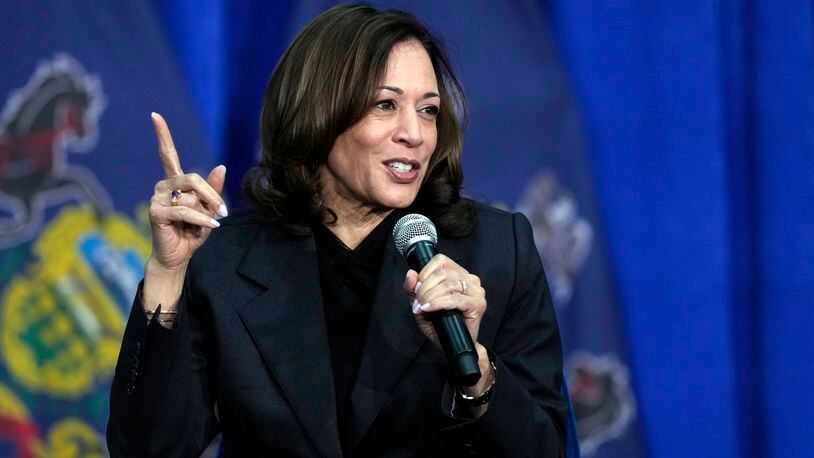The surprise video, which has debuted at a handful of HBCU commencement ceremonies in the past week, will appear at around half of all HBCUs in the country, according to the White House.
“You leave here having been taught that you can do and be anything. And that you have a duty be excellent. To work to uplift the condition of all people. And to fight to protect our most fundamental rights and freedoms,” Harris says in the pre-recorded message.
Harris is the first HBCU graduate elected to the vice presidency and has been embraced by the tight-knit communities that surround many of those historic schools since her time in national politics. Last year, she included HBCUs in a nationwide tour to rally young voters to “fight for fundamental freedoms and rights.”
“We were ecstatic to get the message,” said Quinton Ross, president of Alabama State University, which aired the video during graduation ceremonies earlier this month. “Everyone was excited when her face came on the screen to give that message.”
The Biden administration has allotted a record $7 billion in funding for HBCUs, an investment that the Biden campaign has highlighted in its outreach to Black voters.
Harris' message to graduates comes as the White House faces intense criticism and protests on many college campuses from young voters over its handling of the Israel-Hamas war. Students are also dissatisfied with the state of education domestically, as many universities grapple with increased scrutiny on DEI programs from conservative activists and lawmakers and the fallout of the Supreme Court's ruling that ended affirmative action.
But Harris' commencement message does not broach those hot-button issues; Instead, she strikes a note of celebration for students' academic achievements.
“We need your voice and we need your leadership," Harris says in the video. "In our schools, hospitals, courtrooms, as tech founders, entrepreneurs, engineers, scientists and leaders at the highest levels of government. We need you to continue to work to build a brighter future for our nation and our world. And you are ready.”
Dietra Trent, executive director for the White House Initiatives on HBCUs, said the vice president is sending the right message, "especially in an environment where the country as a whole is, to some extent, rolling back some of the gains that people of color and particularly African Americans have made.”
Trent cited restrictions on the teaching of African American history and stringent election laws enacted in some states as examples of policies adversely affecting Black Americans.
The White House received a high number of requests for Harris to speak in person at HBCU commencements since the beginning of the year, Trent said.
“This is the COVID class. These are students who came into college in 2020, so this 2024 class is really just a special class because they faced obstacles that, honestly, many of us have never had to face as relates to education,” said Rep. Jasmine Crockett, a Democrat who has spearheaded outreach to HBCUs and young voters of color.
____
Matt Brown is a member of the AP's Race and Ethnicity team. Follow him on social media.
____
The Associated Press receives support from several private foundations to enhance its explanatory coverage of elections and democracy. See more about AP's democracy initiative here. The AP is solely responsible for all content.
Credit: AP
Credit: AP
